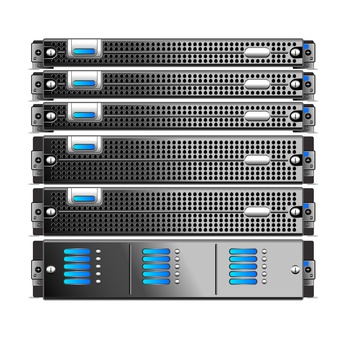Lance Crosby’s security start-up StackPath is proving to be wildly profitable. Since they launched in July 2016, it has possessed the attributes more commonly associated with a veteran firm: 1M customers, 275 employees and $150M in investor funding at its stealth outset. StackPath bills itself as a “security-as-a-service” firm. It launched with five cloud-based services that handled areas from protection against DDoS attacks to secure content delivery. StackPath collects data from each use, intending to get smarter over time in how it is able to monitor and deter threats.
It took Crosby five years to hit $200M in revenue with SoftLayer, his previous startup, which he sold to IBM in 2013 for $2B. StackPath bought in $157M in 2017 alone, ending the year with an annual run rate of $200M, up from $16M at outset. According to StackPath’s recent press release, it is entering 2018 with over one million clients.
“Our mission is to make the internet safe for businesses and their users. That’s an enormous undertaking and requires equally large scale and reach,” said Lance Crosby, StackPath co-founder and CEO. “Our growth over the last year and a half has outpaced our goals and expectations, and accelerates how quickly we will be able to drive the evolution of cloud, specifically at its edge.”
Milestones listed in the recent press release include:
• Swelling CDN bandwidth capacity 33X
• More than doubling the CDN traffic rate
• Growing the consumer VPN 100% each year to date
• Signing enterprise VPN partnerships, e.g. with Eero
StackPath’s money comes primarily from its acquisitions. At the time of launch, Crosby had already made four acquisitions: MaxCDN, Staminus (a DDoS attack specialist), Cloak (a VPN) and Fireblade (a cloud firewall company). In February 2017, the firm acquired CDN company Highwinds, allowing it to massively expand its global footprint and significantly grow its customer base. By purchasing a portfolio of services, StackPath has fast-forwarded its own growth.
Crosby who called his time working at IBM “twenty months in the penitentiary”, says that the companies he has purchased were previously “run like mom and pop shops”. They have now been consolidated onto a shared back end system built for the cloud. Customers pay a subscription fee based on their bandwidth demands, and if they wish, can then play a flat fee for StackPath to take on any further risk. Crosby says that means customers typically scale up their usage only during attacks or if they experience a spike in traffic, and don’t have to assume the additional costs at other times of year. He says that despite the cheaper costs, StackPath still makes a “huge” margin.
Crosby said that he tries to keep headcount low, and on purchasing other companies, tries to eliminate staff from the upper echelons. He says employees still buy in to working for StackPath as they see how quickly they can work under StackPath. “When Highwinds used to light up a new city, it would take them 60 days to get online. We do that in 45 minutes now,” Crosby says. “After we do that, people start believing in cloud in a hurry.” Crosby says, however, that unlike other acquirers such as private equity firms, he heavily invests in business growth. It is able to do so because of its venture backing and customer base, which includes media giants Viacom, Twitch and HBO.
Crosby says its acquisition spree is over for now and the company will focus on consolidating its different brands this year, and adding internal new features, such as a cloud-to-cloud VPN. However, his appetite for growth is undimmed. In the press release, Crosby said, “We’re committed to not just maintaining but increasing the velocity we’ve achieved”. He added “with the integration work we’ve completed and the announcements we will make throughout 2018, I have no doubt we’ll reach our second million customer mark even faster than the first.”

